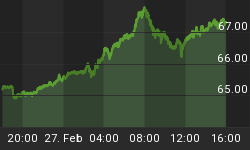
When the GOP handed congress the $1.1 trillion spending measure to pass, which would avoid a government shutdown (with no time for congress to actually read it), the backroom republican strategists buried within it the removal of FIRPTA. There are major reasons for this as we outlined in "Obama Abruptly Waives 1980 Foreign Investment in Real Property Tax Act (FIRPTA)" but less recognized was that it subtle shows what we can expect if the Republican party wins the White House in the upcoming election. The clearly confident GOP party is quietly laying the foundations now.
Klueger & Stein, LLP, who's clients are "individual investors and multinational businesses entering the United States to acquire a U.S. business, invest in U.S. real estate, or enter the U.S. market through a joint venture or the creation of a U.S. subsidiary and also assist U.S. investors and businesses looking to engage in commercial transactions or acquire valuable assets abroad", recently wrote this article which appeared in the corporate rag: LOWTAX - Global Tax & Business Portal:
Our neighbors to the North may have found a way to accomplish some U.S. tax reform. Canada is offering the U.S. the opportunity to gain much needed investment for public works such as U.S. freeways and bridges by using Canadian pension funds. The condition is - drop the 10% tax tagged onto foreigners selling U.S. property.
The Foreign Investment in Real Property Tax Act of 1980 (FIRPTA) was implemented in response to the growing fear of a takeover of domestic resources by foreign money. The law imposes a 10% tax of the sale price on U.S. real property owned and sold by foreigners. Because the law is so broad, it includes foreign pension funds.
President Obama has been pushing for changes to FIRPTA that would exempt foreign pension funds from paying taxes on U.S. real property sales.
In the U.S., public-private relationships, especially foreign ones, have traditionally been viewed with skepticism, and investment in public infrastructure has suffered because of this. Investment in public infrastructure by private funds is reported at 3.6% of the nation's Gross Domestic Product, a significant shortfall compared to the estimated $3 trillion needed to bring the country's public infrastructure up to standard.
If the proposals pass, foreign, including Canadian pension funds could invest in public works projects without investors worrying about the FIRPTA tax burden.
Canadian pension funds including the Canadian Pension Plan Investment Board, the largest in Canada, has been the biggest supporter for the change. Should the FIRPTA law include this exemption it will cost the U.S. government approximately $2 billion in lost tax revenue over the next decade. However, the flurry of foreign investment would far surpass the losses.
Klueger & Stein, LLP are keeping our international clients informed of any changes to FIRPTA that may affect their foreign pension funds and investment portfolios.
Conclusion
The FRA (Financial Repression Authority) believes that a historic stimulus plan currently on the US public policy drawing board is aimed at US Infrastructure Investment. The above article confirms our belief about the degree of backroom "crony capitalism" in the form of Public-Private Partnership negotiations that have been going on. No doubt this has been tied to GOP campaign contributions to fund a historic high slate of 15 candidates. It will of course be sold to the US electorate after the 2016 election as being targeted at creating jobs and stimulating an economy rapidly falling into recession.
However, the real truth is about the massive transfer of wealth needed from pensions to support US government debt financing. Separately, the recent formation of the $51T AIIB (Asian Infrastructure Investment Bank) is an indicator of what the global strategists see as mandatory to keep a rapidly weakening global economy on "life support".















